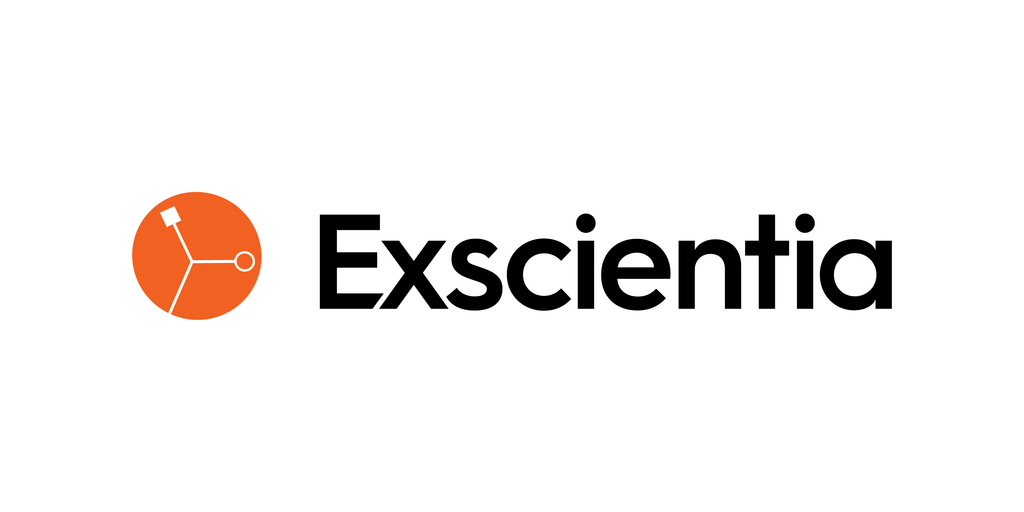Demonstrated combination potential for MALT1 and BTK inhibitors in models of B-cell malignancies
Data highlights efficacy of ‘539 in a preclinical AML model, with limited impact on platelet levels
Identified PD biomarkers related to LSD1 inhibitor treatment
OXFORD, England--(BUSINESS WIRE)--Exscientia plc (Nasdaq: EXAI) today announced three abstracts to be presented at the 36th EORTC-NCI-AACR (ENA) Symposium 2024 from October 23-25, in Barcelona, Spain.
“As our precision-designed LSD1 and MALT1 inhibitors continue to progress towards the clinic, we are excited to share new preclinical data from both programmes,” said David Hallett, Ph.D., interim Chief Executive Officer and Chief Scientific Officer of Exscientia. “These posters, as well as an additional focus on our assay development, highlight the potential of our platform to design best-in-class molecules with improved properties. As our state-of-the-art automation facility continues to ramp up in scale, we look forward to further accelerating the design and development of future molecules.”
The ENA posters will be available on the Exscientia website from their time of presentation.
Poster Presentations
Title: Combining next-generation BTK and MALT1 inhibitors to enhance efficacy and therapeutic utility in B-cell malignancies
Session Title: Combination therapies
Catalog Number: 218
Poster Board Number: PB206
Date/Time: Thursday, October 24 / 9:00 a.m. – 5:30 p.m. CEST
- EXS73565 (‘565) is a potent, selective allosteric MALT1 inhibitor designed to have an improved safety profile, with clinical studies expected to start in early 2025
- Combining MALT1 inhibitors, such as ‘565, with BTK inhibitors has the potential to provide enhanced efficacy in B-cell malignancies, by greater inhibition of pathogenic nuclear factor-kappa B (NF-kB) signalling and addressing BTK-resistance mechanisms
- Exscientia researchers combined ‘565 with the BTK inhibitor zanubrutinib and observed deeper, more durable efficacy responses in xenograft models of B-cell malignancies, with long-lasting tumour eradication seen for activated B-cell-like diffuse large B-cell lymphoma (ABC-DLBCL)
- Studies also confirmed target pathway biology engagement, with ‘565 alone and in combination with zanubrutinib inhibiting NF-kB target gene expression in in vivo models
- Overall, the selective profiles of ‘565 and zanubrutinib may maximise the therapeutic index of MALT1 and BTK inhibition in combination, providing scope for enhanced efficacy for patients with B-cell malignancies
Title: In vivo pharmacokinetics, pharmacodynamics and anti-tumour efficacy of EXS74539: A novel, reversible LSD1 inhibitor for acute myeloid leukaemia
Session Title: Epigenetic modulators (HDAC bromodomain modulators, EZH2)
Catalog Number: 250
Poster Board Number: PB238
Date/Time: Thursday, October 24 / 9:00 a.m. – 5:30 p.m. CEST
- ‘539 is a novel, potent, selective and reversible LSD1 inhibitor, with a highly differentiated profile and designed to be brain penetrant, expected to enter the clinic in early 2025
- The poster highlights that by combining ex vivo perturbation of primary human acute myeloid lymphoma (AML) samples with ‘539 and omics profiling, 12 potential pharmacodynamic (PD) biomarker gene candidates were identified that correlate with LSD1 inhibitor activity
- Upregulation of the identified biomarker gene candidates was confirmed in an in vivo AML xenograft model post ‘539 treatment
- Treatment of the in vivo model with the reversible inhibitor ‘539 resulted in limited platelet level effects, highlighting how ‘539 was designed to maximise target engagement while limiting thrombocytopenia
Title: Xcellomics: Powering rapid translation of HTS outputs to AI-driven drug discovery programmes
Session Title: Functional genomics
Catalog Number: 414
Poster Board Number: PB402
Date/Time: Friday, October 25 / 9:00 a.m. – 3:00 p.m. CEST
- Xcellomics is a collaboration between Exscientia and The Centre for Medicines Discovery at the University of Oxford, used to rapidly translate the results of cell-based, high-throughput screens into transformative oncology therapies
- The collaboration has successfully identified and validated novel essential regulators of a key oncogenic pathway
- Automated assay development and chemical hit ID performed by Exscientia rapidly pushed these novel therapeutic targets into drug discovery programmes
About Exscientia
Exscientia is a technology-driven drug design and development company, committed to creating more effective medicines for patients, faster. Exscientia combines precision design with integrated experimentation, aiming to invent and develop the best possible drugs in the most efficient manner. Operating at the interfaces of human ingenuity, artificial intelligence (AI), automation and physical engineering, we pioneered the use of AI in drug discovery as the first company to progress AI-designed small molecules into a clinical setting. We have developed an internal pipeline focused on oncology, while our partnered pipeline extends to many other therapeutic areas. By leading this new approach to drug creation, we believe we can change the underlying economics of drug discovery and rapidly advance the best scientific ideas into medicines for patients.
For more information visit us on www.exscientia.com or follow us on LinkedIn @ex-scientia and X @exscientiaAI.
Forward-looking Statements
This press release contains certain forward-looking statements within the meaning of the “safe harbor” provisions of the Private Securities Litigation Reform Act of 1995. Words such as “anticipates,” “believes,” “expects,” “intends,” and “projects” or similar expressions are intended to identify forward-looking statements. All statements, other than statements of historical facts, included in this press release are forward-looking statements. These statements include, but are not limited to, statements regarding the combination potential for MALT1 and BTK inhibitors in models of B-cell malignancies, PD biomarkers related to LSD1 inhibitor treatment and the benefits of reversible LSD1 inhibition on platelets as well as the ability of Exscientia’s technology to design compounds to create more effective medicines for patients. Such statements are subject to a number of risks, uncertainties and assumptions, including those related to: the initiation, scope and progress of Exscientia’s and its partners’ planned and ongoing preclinical studies and clinical trials and ramifications for the cost thereof; clinical, scientific, regulatory and technical developments; the development and deployment of new technology and facilities; the process of discovering, developing and commercialising product candidates that are safe and effective for use as human therapeutics and the endeavour of building a business around such product candidates; and the process of creating a combined company with Recursion Pharmaceuticals and subsequent activities by any such combined company. In light of these risks and uncertainties, and other risks and uncertainties that are described in the Risk Factors section and other sections of Exscientia’s Annual Report on Form 20-F, filed with the Securities and Exchange Commission (SEC) on March 21, 2024, and other filings that Exscientia makes with the SEC from time to time (which are available at https://www.sec.gov/), the events and circumstances discussed in such forward-looking statements may not occur, and Exscientia’s actual results could differ materially and adversely from those anticipated or implied thereby. Although Exscientia’s forward-looking statements reflect the good faith judgement of its management, these statements are based only on facts and factors currently known by the Company. As a result, investors are cautioned not to rely on these forward-looking statements. Exscientia undertakes no obligation to publicly update or revise any forward-looking statements, whether as a result of new information, future events or otherwise, except as may be required by law.
Contacts
Investor Relations:
Sara Sherman
investors@exscientia.ai
Media:
David Keown
media@exscientia.ai






